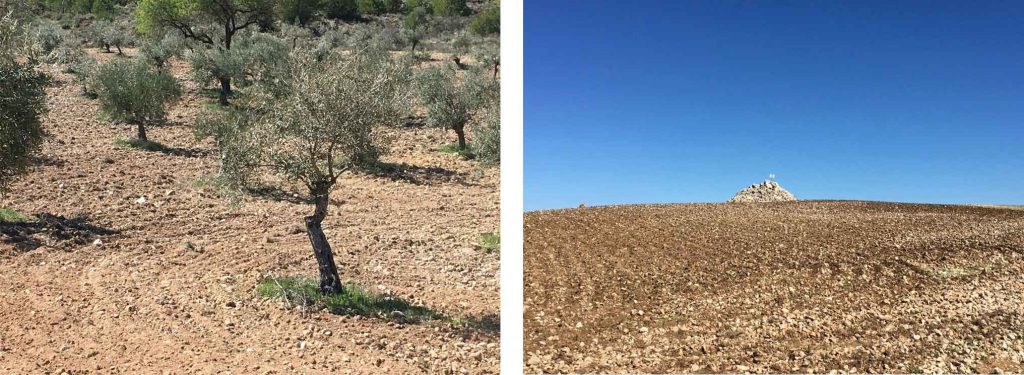What we do.
Project Management
Project Management to combat soil degradation
The degradation of arable land is a significant global issue that threatens food security, biodiversity, and ecosystem health. Worldwide we see over 30% of agricultural soils in degraded situations and in the European Union up to 60%, with the Mediterranean regions as a hotspot of soil degradation.

Learning Organization Framework
We help project regions develop dynamic learning organizations focused on continuous learning, collaboration, and adaptation. By integrating students and young professionals as “Junior Consultancies”, we spread expertise and technology, increase job opportunities and ensure that initiatives benefit all stakeholders effectively.
1. Understanding the Context
- Soil Degradation Challenges: Identify causes (e.g., erosion, deforestation, mismanagement).
- Stakeholder Engagement: Involve students, young professionals, farmers, communities, governments, NGOs, researchers, and private sector actors.
- Technical Solutions: Assess current efforts and select regenerative soil cultivation techniques and sustainable ecosystem management strategies.
💡 Join our initiative—empower junior consultancies and drive innovation in your region!
2. Building a Learning Culture
- Collaborative Learning: Encourage stakeholder cooperation, including farmers, young professionals and students.Create platforms for exchanging best practices and research.
- Capacity Building: Train and develop soil improvement strategies with stakeholders (subsoiling, microbiome strategy, cover crops, agroforestry, bioenergy, composting)
- Long-Term Impact: Farmers receive innovative solutions. Students and young professionals design demonstration farms and lighthouse projects and gain professional experience.
🌍 Your engagement makes a difference—support local change-makers today!
3. Developing Adaptive Systems
- Agricultural Technology: Select proven technology for project regions and initiate funding or co-funding through crowd investing, foundations, sponsorships, local investors, and grants.
- Drive Innovation: Experiment with innovative technologies facilitated by research partners, industry partners, farmers and junior consultancies.
- Monitoring & Evaluation: Track soil health, assess intervention impacts, and refine strategies based on data insights.
🔧 Looking to invest in agricultural innovation? Let’s equip regions with the best tools!
4. Empowering Local Communities
- Local Leadership: Train farmers, local champions who drive change, and youth as ambassadors for sustainable soil management.
- Community-Driven Decisions: Establish farmer cooperatives to shape project strategies.
- Education & Training: Provide rural knowledge centers where communities can access information, tools, and mentorship
- Economic Empowerment: Facilitate cooperative business models and agribusiness training, to help local farmers and entrepreneurs invest in sustainable practices
- Business & Innovation: Support farmer-owned enterprises, eco-tourism, and digital market access.
- Sustainability: Train locals to monitor soil health and advocate for supportive policies.
5. Job Opportunities
Regional professionals and junior consultancies can offer specialized services that support soil restoration and sustainable farming practices. Potential job opportunities include:
- Agricultural Services: Soil assessments, sustainable farm planning and technology integration.
- Education & Training: Organize workshops, university partnerships, and community engagement programs, digital agriculture consulting.
- Business & Marketing: Support regenerative farming product sales, eco-tourism, and digital advisory services. Develop farm tours and sustainability experiences.
- Investment & Funding: Facilitate crowdfunding, grants, sponsorships, and impact investments. Identify funding sources for sustainability initiatives. Connecting local businesses with regenerative agriculture projects.
6. Scaling Impact
- Pilot Projects: Test solutions with farmers and junior consultancies.
- Knowledge Dissemination: Share successful models and best practices.
- Policy Advocacy: Collaborate with policymakers to develop supportive regulations.
- Leveraging Technology: Utilize GIS, remote sensing, and mobile apps.
- Research Partnerships: Integrate academic expertise into real-world applications.
Key Benefits of Partnering with eese ltd.
✔ Resilience: Farmers and communities adapt to environmental challenges.
✔ Sustainability: Continuous learning fosters lasting solutions.
✔ Empowerment: Local ownership enhances impact and relevance.
✔ Innovation: Junior consultancies bring fresh perspectives.
🎯 Join our mission today! Work with us to create a sustainable future for agriculture.
